The healing power of music
The sound of jazz rose over Kathmandu, still shocked by September’s death and destructionBetween Dasain rites and Tihar lights, the 21st edition of Surya Nepal Jazzmandu ended with a hearty deusi jam session at The Malla Hotel on Wednesday.
The festival began last week with a concert for a lively young crowd at St Xavier’s School. Across town, the first bassline dropped at Jazz Upstairs with an impromptu ensemble as dusk fell over the city.
Over the intervening days, Jazzmanduites faced a delightful dilemma of choosing between a lineup of intimate venues, each sending waves of music across the valley.
“Because of the unrest, audiences from all over the world were inquiring and waiting for Jazzmandu,” said Navin Chettri, drummer of Cadenza Collective and co-founder of Jazzmandu. “The fact that they came was a testament to the power of music, and spoke of Nepal’s resilience.”
German artist Leona Berlin’s R&B was the one to watch, while cymbals echoed during the Swiss quartet mohs. set with Nu Jazz and neo-soul. The enthralling and soulful ragas from Jonisha Poudel rose over Patan’s brick courtyard as the sax joined in celebration.
“Jazz was born from struggle and social unrest – and what emerged was something beautiful. In times like these, that spirit is something we can all aspire to,” said Jason Amirhadji, a first-time visitor to Nepal.
Femke Smit and Mike Del Ferro from the Netherlands infused the air with the colourful, flowing spirit of Brazilian music. With Smit’s voice and Del Ferro on the piano, the audience was swaying to the music.
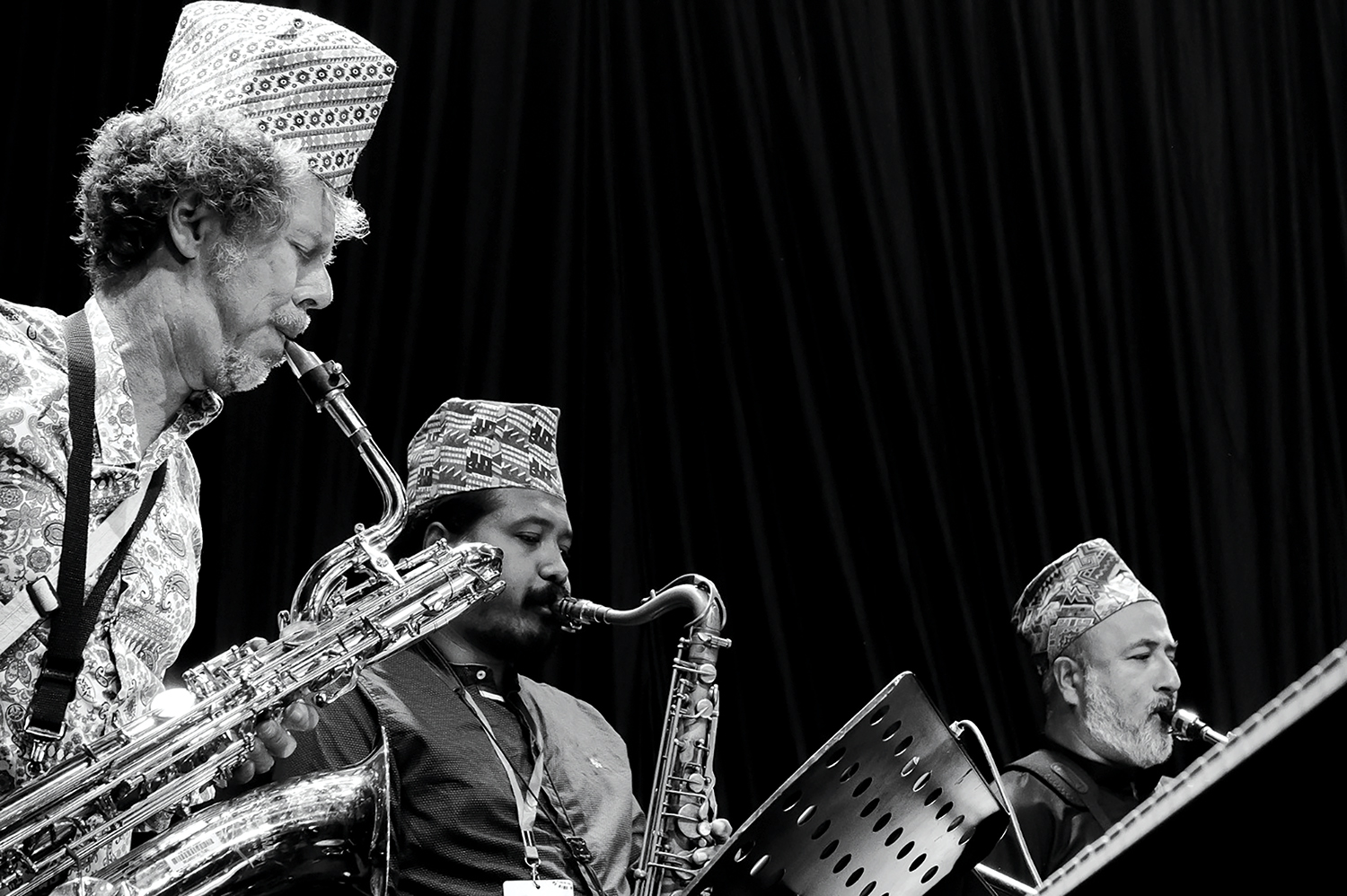
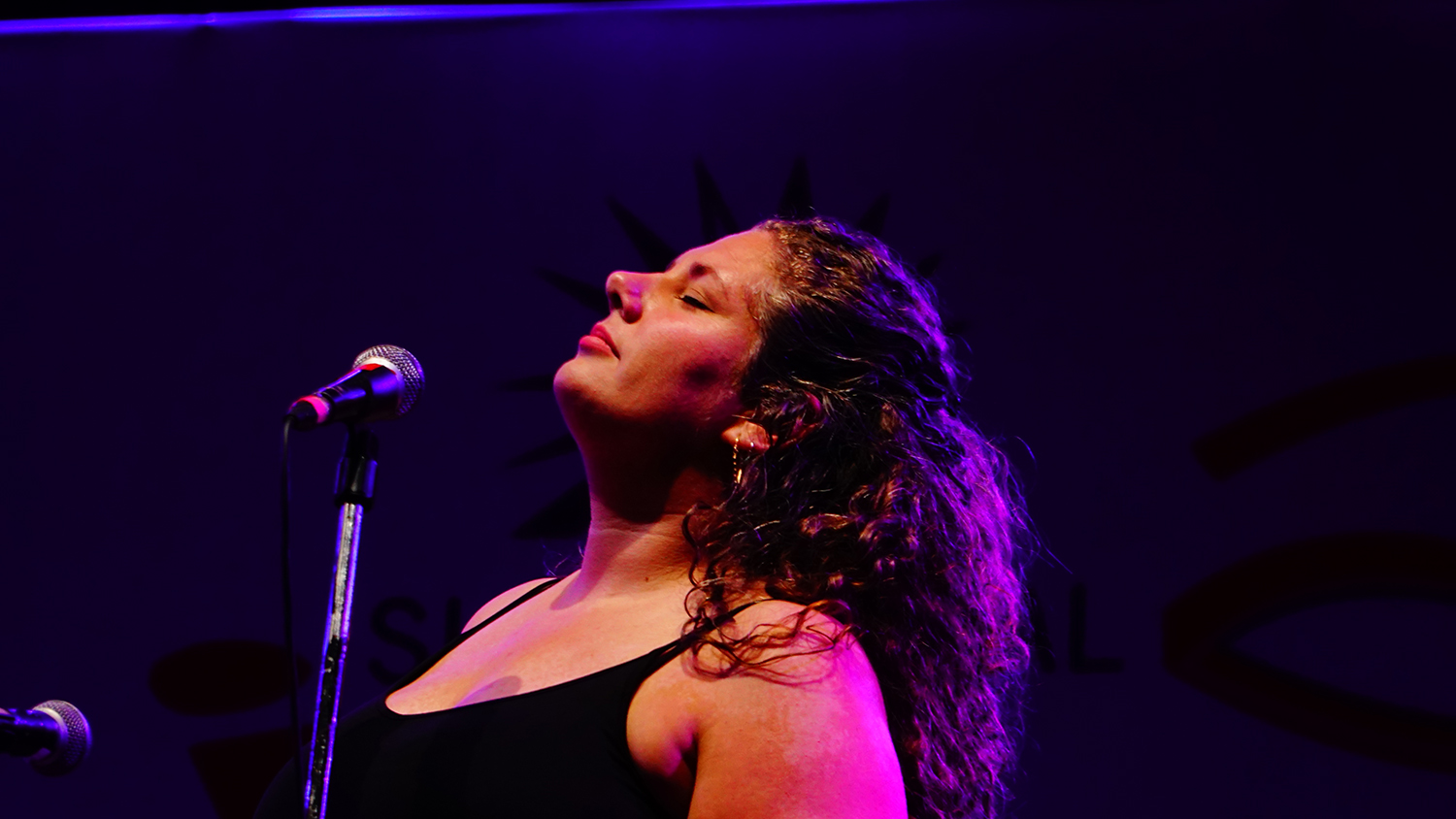
“This is a synthesis between Nepali folk music and international jazz,” explained flautist Roshan Putwar before hopping on stage to play a soulful set. Putwar has researched Dāphā music and performed across the world.
For the past weeks, the city’s pulse has been political: streets echoing with demands for change, there are still aftershocks of the upheaval that left the city weary and voices raw. And in the evenings, jazz acts too resonated with a quiet defiance. Musicians bent notes in response to the disquiet, and the audience imbibed it with eyes closed.
“It takes great courage to come to Nepal after what happened and with the artists’ support we are able to revive unity and healing through music,” says festival co-organiser Samir Chettri, bassist of Cadenza Collective. “Music heals, and this festival brought positivity and peace among all.”
The Cadenza Collective shared the stage with Australian saxophonist and composer Nick Aggs, a Brisbane native and member of the fusion group Afro Dizzi Act in a mix called Afrodenza.
“It’s a privilege to play with musicians all over the world, especially with Cadenza because I’ve known the boys since 1999,” said Aggs.
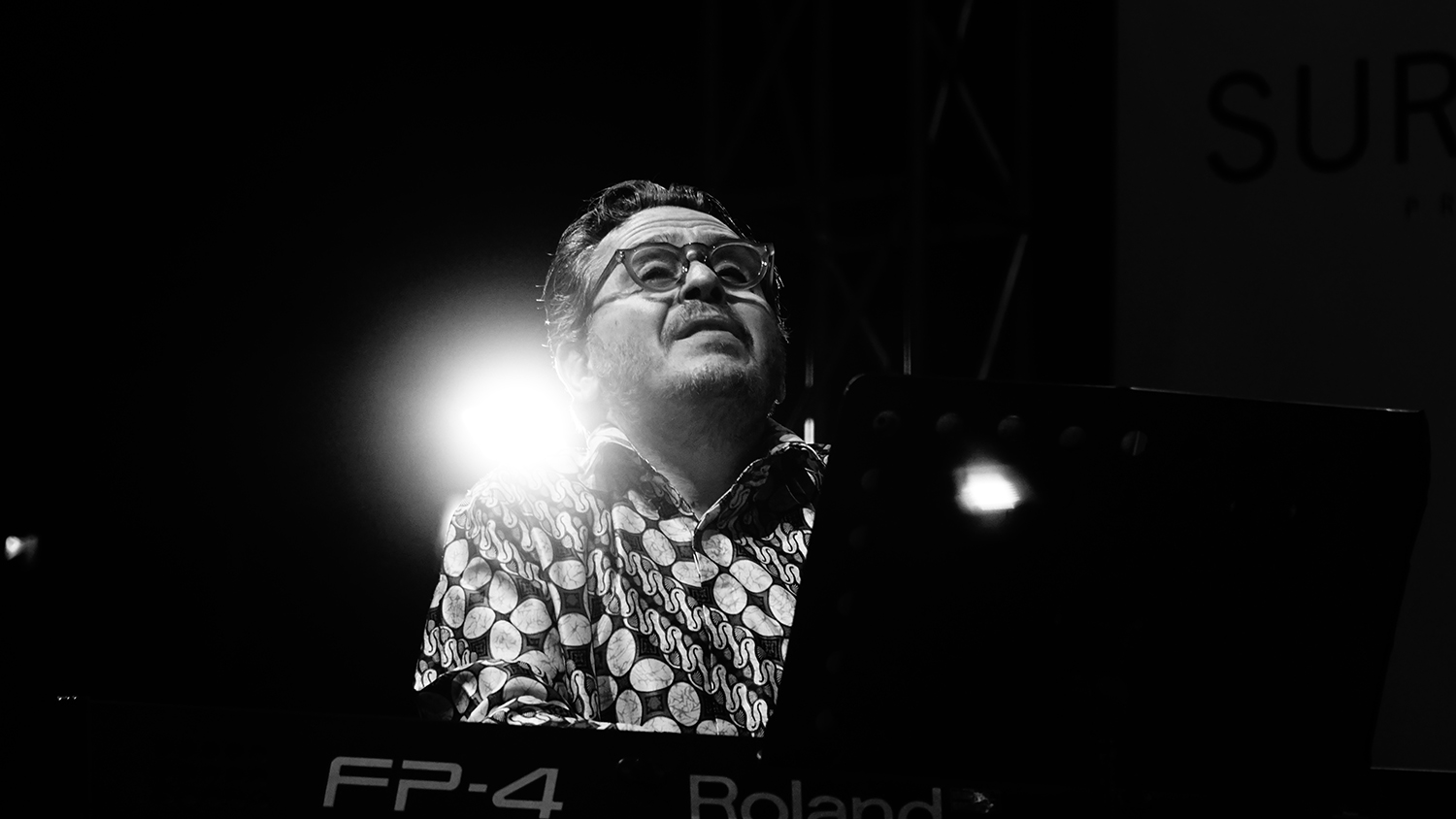
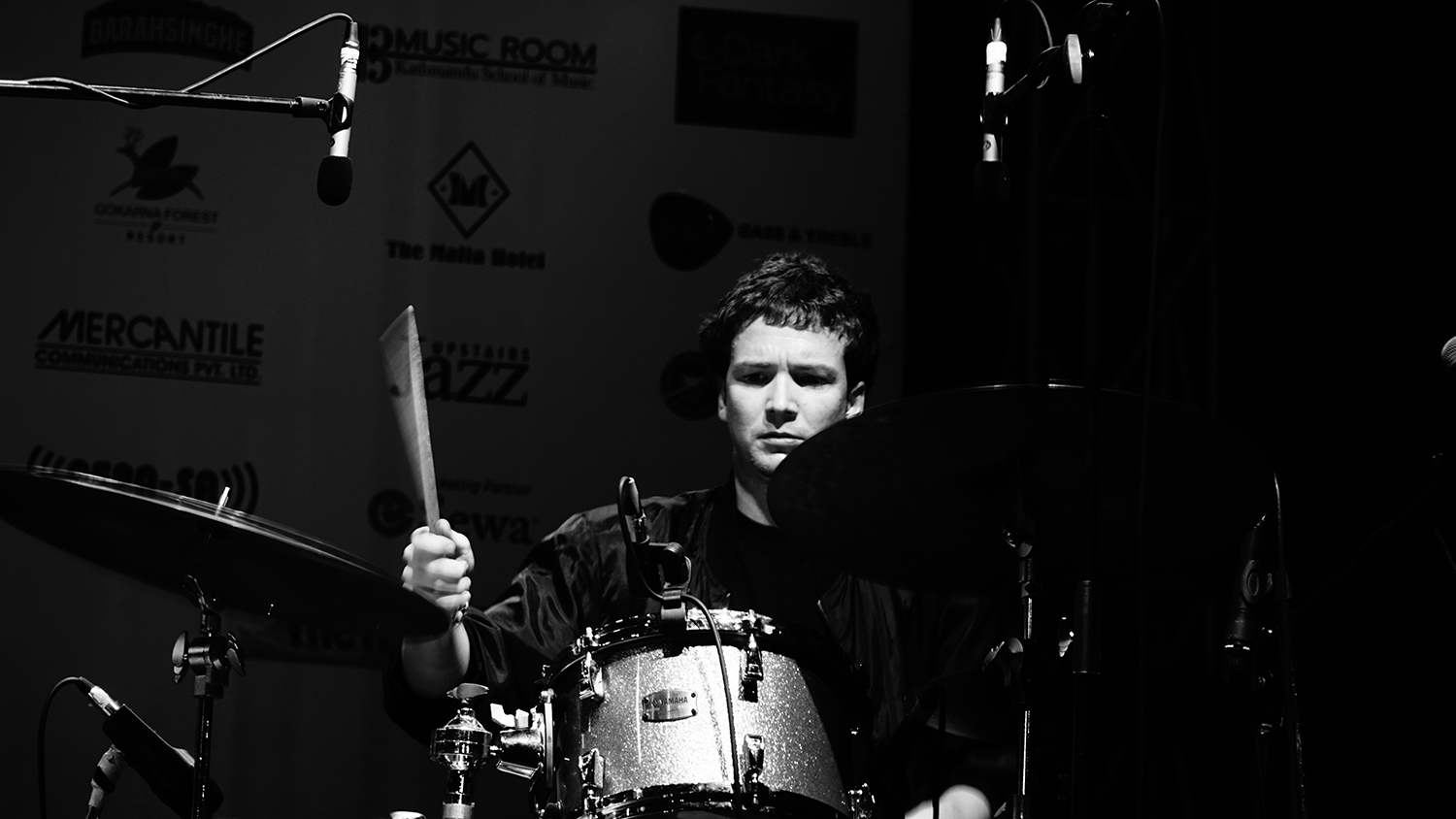
On Saturday, musicians and fans gathered for an open-sky Jazz Bazaar at Gokarna Forest Resort. Brazilian singer and composer Catia Werneck’s quartet got the audience on its feet to their bossa nova and samba tunes. “It’s the highest music festival in the world,” Werneck beamed.
Every solo, every exchange between tabla and drums, sounded the amalgamation of east and the west here at the heart of Nepal. On Tuesday, the audience clapped and danced as a mix of artists performed songs like ‘Blues Selo’ and ‘Shiva’s Dance’, at Yalamaya Kendra in Patan.
There were jazz fans who came to Kathmandu just for the music, like Namrata Raju from India. She said: “This was our second Jazzmandu. The artists were thoughtfully curated. There were people from all over the world, and the festival sets an example of music, peace and cultural appreciation”
Chethana Salian from Oman agreed: “This is my first time at Jazzmandu, and what a fabulous way to let your hair down with some foot-tapping music. Added a bunch of the artists to my morning playlist, especially Cadenza Collective.”
Cadenza’s Navin Chhetri sipped his beer, satisfied at the success of the festival: “Jazzmandu is becoming a tourism draw for musicians and audiences alike.”
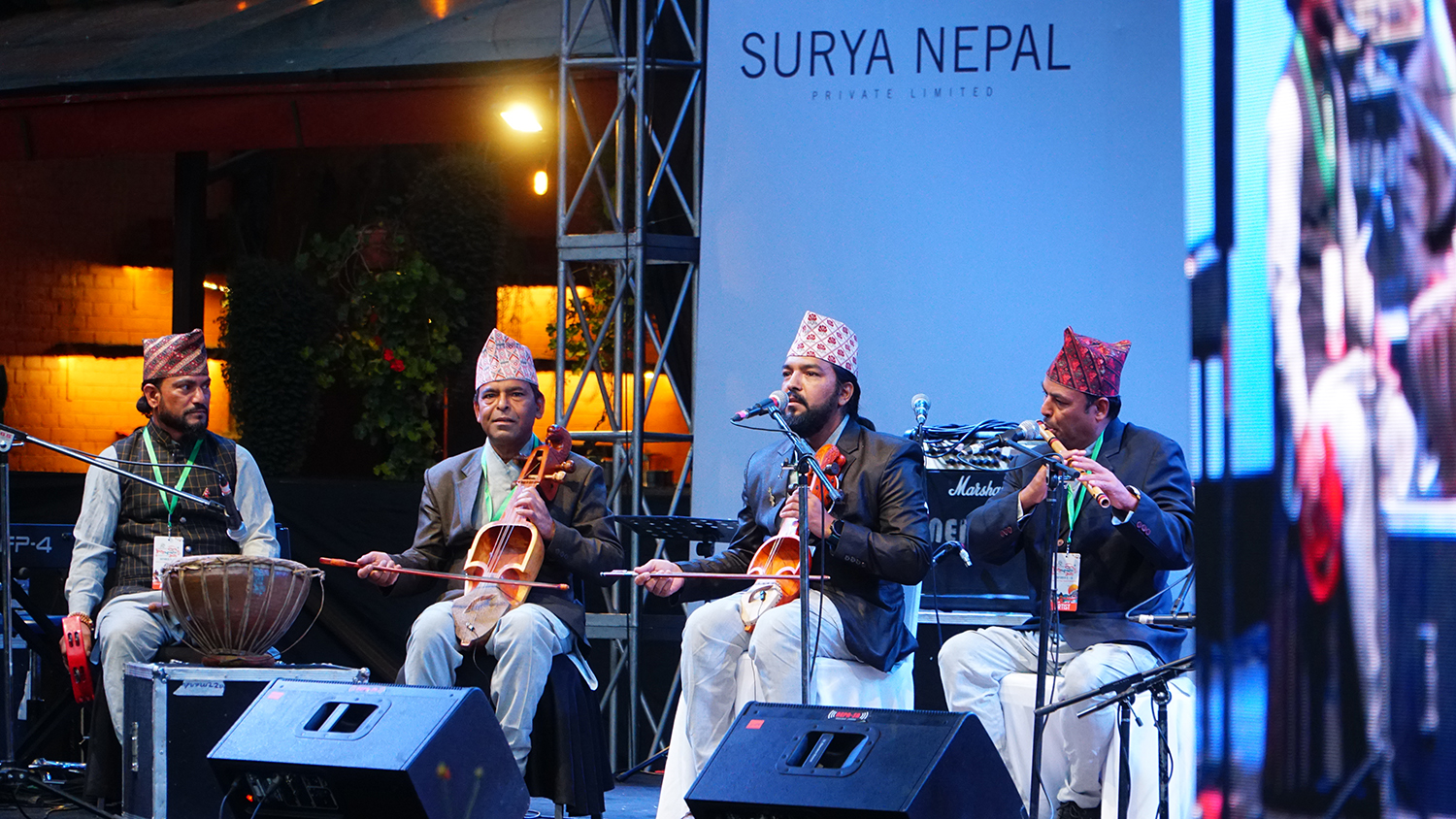
The Samundra band representing Nepal’s Gandharva community opened the finale with rousing Tihar songs played on sarangi, flute and madal.
Joelle Loretan from Switzerland, another first-timer in Nepal, spoke of the positivity of Nepalis: “The people here are so welcoming and in good spirits despite what they have been through.”




